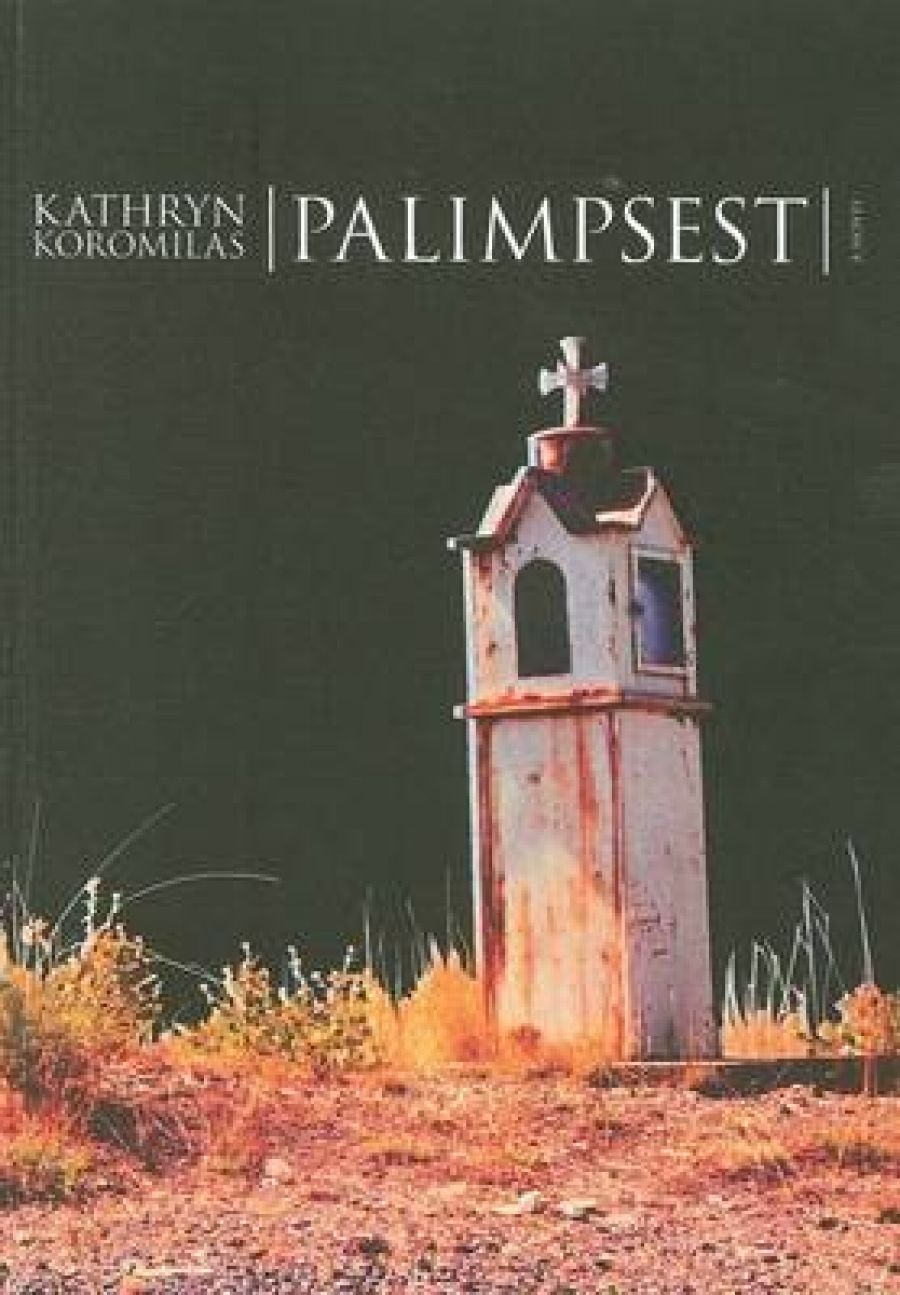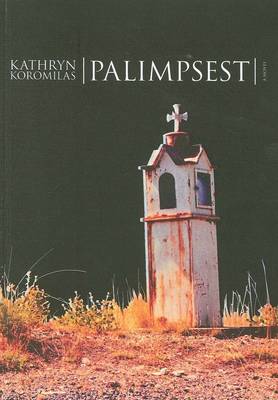
- Free Article: No
- Contents Category: Fiction
- Review Article: Yes
- Online Only: No
- Custom Highlight Text:
Kally Palamas is an Australian of Greek descent; a trained and published philosopher barely coping with a personal tragedy in the man-made caves of Cooper Pedy. Estranged from her lover and living a solipsistic life, her world is disrupted when she travels to Greece to deal with the ceremony of her father’s death.
Her father, Akindynos Palamas, had been one of the many Greek migrants to travel to Australia in search of freedom and fortune. However, after achieving success in his adopted land he succumbed to the lure of the myths of his old country while his family continued their lives in Australia.
- Book 1 Title: Palimpsest
- Book 1 Biblio: $24.95 pb, 219 pp
- Book 1 Cover Small (400 x 600):

- Book 1 Cover (800 x 1200):

Like a modern day Edward Casaubon, from Eliot’s Middlemarch, Akindynos returned to his little village of Zelopolis, and became a self-proclaimed philosopher driven to comprehensively record and preach the virtues, ideals and truth of Hellenism.
As the novel’s title unsubtly announces, the novel is structured as a palimpsest with multiple stories providing variations of the main theme. And added into the mix, almost as an afterthought, is the story of Kally Palamas. Unfortunately, she is neither complex nor compelling. Her function is to observe and collate these many strands of storytelling to the reader, and her father is exposed as an obsessed man, impervious to ideas and critical thinking, a dangerous man, whose death is quickly described so that the novel can be concluded.
Palimpsest is proudly postmodern. Extolling and proclaiming its self-conscious intertextuality: from the words of its Prolegomena, to its quotations from Orwell, Voltaire, Wilde and Co, and yes, Plato’s famous parable of the cave makes an appearance, but not because it advances the narrative in any meaningful sense. Philosophical fiction is art that can transform lives. Koromilas is a thoughtful writer, but she must leave the academy behind if she wants to write authentic fiction.


Comments powered by CComment